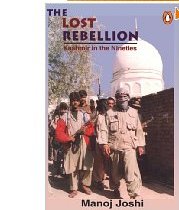
Balachandran’s book has given us an unusual Indian perspective of the complicated 1920s and ’30s in Europe. Through Nambiar’s life and activities, Balachandran etches vividly the rise of Nazism, the German occupation of Czechoslovakia, the chaos and confusion accompanying the fall of France and the tumultous period following Netaji’s arrival in Germany and the establishment of the Azad Hind Office there. He also gives us a picture of the gritty circumstances in which many of our freedom fighters lived during the war, especially in its closing period, when they were hunted by British intelligence.
Into this story he weaves the details of how Nambiar became close to Nehru, and subsequently his family, at a time when Kamala was ailing and, accompanied by Indira, had come to Europe for treatment. Equally fascinating was his relationship with Bose, who he first met in the mid- 1930s and who he tracked to his hideaway in a French village at the Spanish border in 1941 after his dramatic escape from India. Soon, Bose was to seek his help in setting up the Azad Hind Office.
Balachandran has, of course, benefited from his own, somewhat shadowy association with Nambiar beginning in 1980, when he was asked by his superiors, at the behest of Indira Gandhi, to contact him at his home in Zurich. He speaks somewhat elliptically of this relationship, which ended when Nambiar passed away in 1986 in New Delhi. By then, Balachandran did manage a long interview with Nambiar, but he has also scoured the files of British intelligence and the Bombay Special Branch for information on Nambiar and his divorced wife, Suhasini Chattopadhyay, and marshalled information available from a variety of sources.
Significantly, the book throws light on the Nehru-Bose relationship. Nambiar may have been Bose’s deputy, but after independence, Panditji appointed him ambassador to various European countries and it was Indira who sought him out. Nambiar was cut off from his own family and it’s clear from Indira’s letters to him that she loved and respected him.
The book questions the notion, popularised by a certain class of people whose political progenitors did not participate in the national movement, that Bose and Nehru were irreconcileable adversaries. Through the eyes of Nambiar, Balachandran describes the courtesy that marked the Bose-Nehru relationship and Panditji’s efforts to help Bose’s widow Emilie Schenkl after the war.
The one area that Balachandran does not explore in detail is the allegation, made in some British intelligence documents, based on the information of a Soviet defector, that Nambiar was a spy working for the Soviet military intelligence. Perhaps there is not much there to explore. There is no doubt that Nambiar was a Leftist of sorts; Suhasini was associated with the Communist Party of India. His own columns in newspapers reflected his distate for Nazism. But, his importance in the records comes from his role as an aide to Bose who, it is clear, had a high opinion of his abilities.
Achievements by themselves do not guarantee a place in history, nor do notoriety or good deeds. What gives life to the art of history is the manner in which we constantly interrogate our past to understand the present, often through the prism of our contemporary concerns.
By that measure, Nambiar’s place would have been secure, as he was amongst the handful of Indians living abroad who contributed to our freedom struggle, and was an associate of both Nehru and Bose.
But Nambiar was naturally self-effacing and insisted on living, as the title suggests, a life in the shadows. So it has taken another person used to such a life to shine some light on him. Balachandran has made an enormous contribution by bringing to life a person who would have been quite content to die in obscurity.
Outlook March 27, 2017



No comments:
Post a Comment